- Mon - Fri: 8 AM - 5 PM.
- 1806 Professional Dr A, Sacramento, CA 95825

Your child’s dental health is a crucial aspect of parenting, and it should be taken into account as well. Kids should not just avoid cavities when taking their dental care, they should also develop lifelong habits. This blog post will provide answers to common questions parents ask about tips for keeping your child’s teeth healthy and strong.
From a early age, dental health is the foundation for lifelong oral care. Dental problems can result in cavities, gum disease or affect communication. Serious tooth problems can be avoided by teaching kids early on.
Good oral hygiene goes hand in hand with a child’s overall physical and mental well-being. Dental issues or cavities can have consequences that may affect sleep, concentration, and heart health in the later stages of life. That’s why Children’s dental care should never be disregarded.
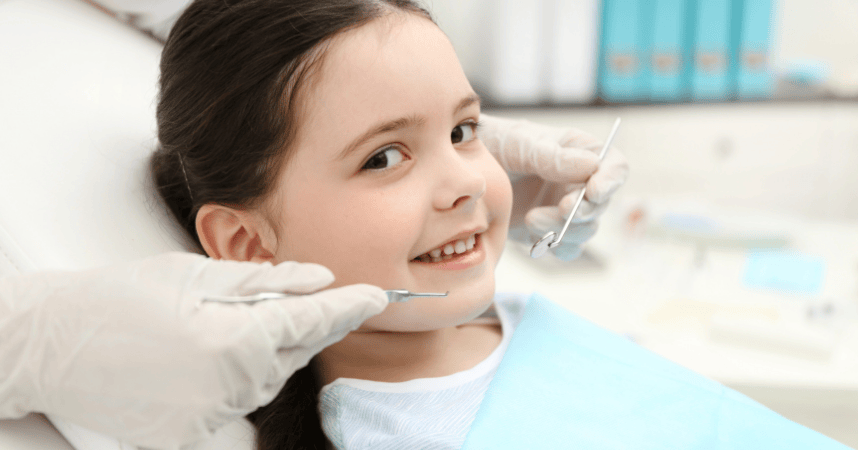
Before your child’s first tooth erupts, you should begin cleaning their mouth. At the onset of teeth development, typically around 6 months, use water-based baby toothbrush and then add a bit fluoride toothpaste.
A small amount of fluoride toothpaste should be used for brushing, and children should use it by the time they reach 3 years old . Keep them under your care and include brushing in their daily routine before bedtime.
Brushing should not be boring! Make it a fun activity for them:
Use a toothbrush to represent their beloved cartoon character.
Use flavored or a good child-friendly toothpaste.
Play music or set a timer that lasts for two minutes.
Using a sticker chart, encourage regular brushing.
Children are more likely to brush regularly if they find it enjoyable or bonding.
If applied properly, fluoride is a safe and efficient cavity prevention treatment. It actions by strengthening the enamel and makes teeth more strong. Use a small amount of toothpaste and teach your child to spit instead of swallowing it. For more info about fluoride toothpaste use , Read these Guidelines by ADA.

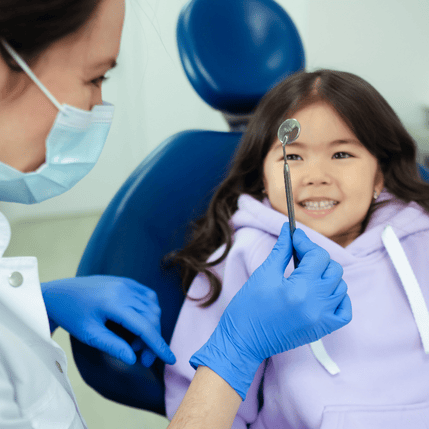
Children are typically scheduled to see a dentist by their first birthday or within 6 months of receiving their initial tooth. It is advised to schedule follow-up appointments every six months for:
Preventive care and cleanings.
Monitoring dental development.
Rapid detection of hindrances or alignment issues.
Sugar consumption frequently affects children’s teeth. Try to:
Reduce the amount of sticky things, such as gummies and candy.
Use milk or water instead of sugary juices.
As a healthy alternative give cheese, fruits, and vegetables.
Toss food into water to help children clean themselves after eating.
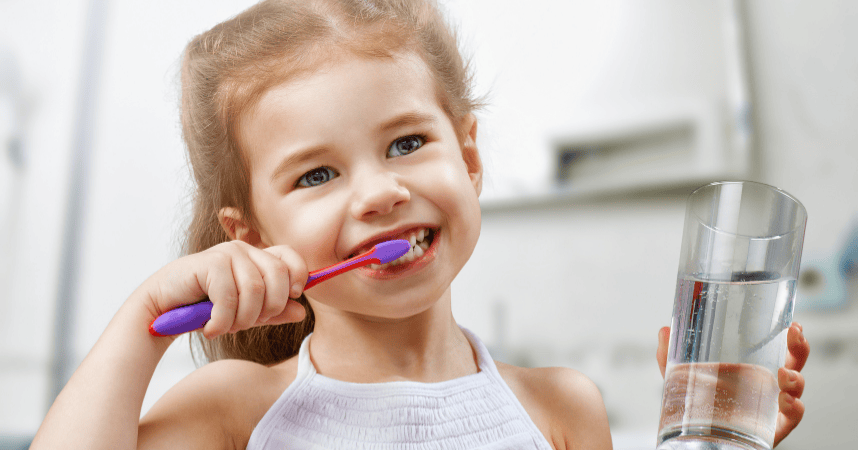
Some tips to use, if your child do not like brushing at all
Allow them to select their toothpaste or toothbrush as they want.
Use a fun brushing tracker and offer small rewards to motivate regular brushing.
Brush a toy’s teeth or even create stories around toothbrush and cavities for a enjoyable brushing.
Consistency and patience are key. It takes time for habits to become established.
In a regular dental visit:
Examine teeth and gums.
Monitor early signs of cavities or other issues.
Clean the teeth.
Educate on proper brushing techniques.
These visits provide parents with the opportunity to inquire about oral habits, diets, and preventative care.
Children are most commonly affected by tooth decay, which is a chronic illness.
Plaque buildup can lead to gingivitis, which is a mild gum disease.
Teeth problems may cause discomfort, or irritability.
Prepare for tooth damage when children experience frequent falls.
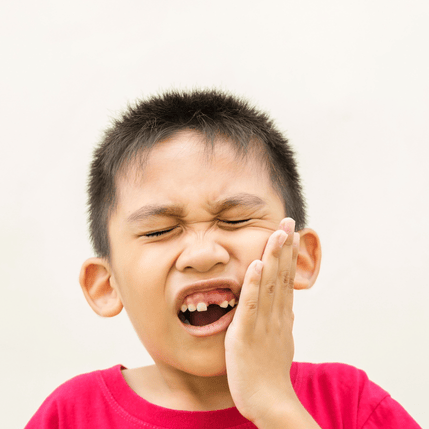
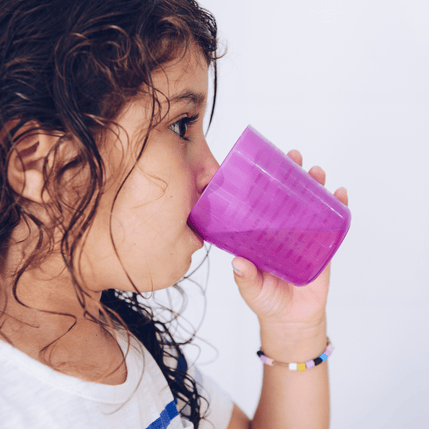
It is advised to keep a severely cut tooth wet with milk or saliva and to visit the dentist immediately.
After you rinse your mouth, apply cold compress to soothe your sore muscles.
The key to saving a tooth is through quick thinking and taking action.
Electric toothbrushes are a great option for children who struggle with brushing.
Make them Use Floss Picks instead of normal floss as they are easier to use for children.
It is important for children in contact of sports to wear gumshield or a mouthguard.
A Proper Nutritious Diet promote good oral hygiene:
Add dairy, leafy greens and lean protein.
Avoid sweet foods every day.
Major causes of childhood tooth decay is sugar.
Try to:
Limit sticky sweets and chewy treats, as they tend to cling to teeth and promote decay.
Replace sugary juices with water or milk.
It is recommended that kids should drink water after meals to remove food particles.

Q. Is it possible that my child is facing speech issues due to bad teeth?
A: Yes, if there are any improper or broken teeth.
Q. Are dental X-rays appropriate for children?
A: Yes, dentists only utilize low radiation dosages when absolutely necessary.
Q. Is it recommended to use mouthwash for children?
A: Only after a dentist’s recommendation and typically after the age of 6 is considered acceptable.
Final Thoughts
You’ll ensure your child has solid teeth for the rest of their life with everyday brushing, good eating practices, and quarterly dental checkups.Also Remember, the habits you develop into your children today can help them in the future.
For trusted pediatric dental care and more expert tips, visit Dental Krafts – your family’s dental health partner
Quick Links
Services
Areas We Serve
Contact info
Open hours